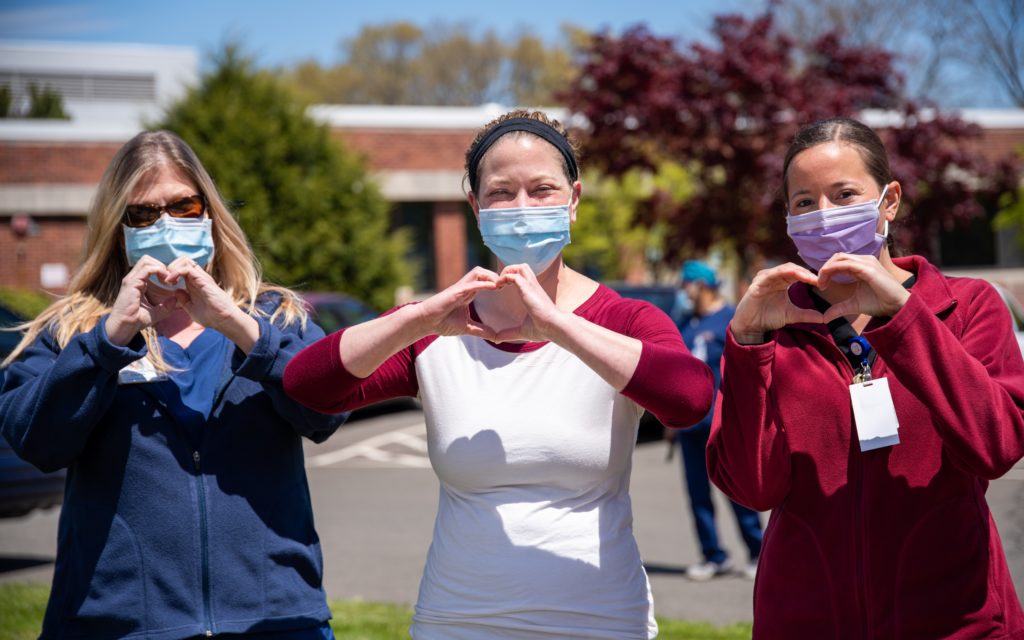Being a nurse is hard. You face a lot of challenges, both physical and mental, and see numerous patients every day. At some point in your career, no matter how successful you’ve been, you may even start to doubt your abilities. After all, there are thousands of other nurses that do the same jobs as you, but some nurses are just better than others. Why is that?
A great nurse isn’t just someone who knows what they’re talking about when speaking with a patient. While this is an important factor, many other aspects make great nurses great.
Whether you’re looking for validation or you want to improve your patient care abilities, here are some of the things that make great nurses stand out.
 #1. Organization
#1. Organization
Every nurse knows just how much there is to keep track of during a single shift. If you don’t have great organizational skills, then you’ll look and feel overwhelmed. Organized nurses are the quickest to adapt to sudden changes and can prioritize their work efficiently.
The most organized nurses can provide high-quality care to all of their patients without overlooking their personal needs. Staying organized isn’t just about keeping neat files and writing sticky notes whenever you can, but also about prioritizing some tasks over others and keeping yourself productive even if there’s a lull.
 #2. Compassion
#2. Compassion
Nurses need to remain level-headed and neutral when interacting with their patients, but being able to show compassion when necessary is a mark of a good nurse. Patients may not understand what’s wrong with them and many of them will feel scared, but as a nurse, you can call them and lend a compassionate ear.
The best nurses don’t just do their job because they have to; they take time to listen to their patients and show them that they care. It’s impossible to provide high-quality care and service without first caring for your patient’s wellbeing.
As a nurse, you’ve likely encountered a lot of difficult situations and you will encounter even more in the future. While these things can be stressful and overwhelming, taking the time to just sit with patients and listen or offer a much-needed distraction can be an invaluable sign of compassion. Much of the time, the biggest thing a patient needs is a shoulder to lean on or an ear to listen.
 #3. Respect
#3. Respect
During your time as a nurse, you’ll encounter patients that lead a very different lifestyle from you. They may have different religious beliefs or align themselves with a certain side of politics. No matter what, the best nurses can put aside their differences and respect every patient that is entrusted to them.
Some patients will make bad medical decisions despite your suggestions and advice, but it’s important to respect that. They’re scared and don’t have as much medical expertise as you. If you truly want to provide them with the care they need and deserve, though, you’ll have to respect their beliefs and decisions.
 #4. Communication
#4. Communication
Communication skills are something you learn with time, not something you’re born with. While some people do tend to be better at communicating than others, great nurses are always looking to improve how they communicate. They know how to adjust the things they say so that patients understand them, whether this is explaining a procedure or changing their body language.
There is a lot that comes into play with communication and many people confuse it with talking. While speaking is an important part of communication, it’s equally important to listen to others in the conversation.
You are often the liaison between patients and physicians, so as a nurse, you must communicate with both parties. If a patient has particular concerns or beliefs that you know will interfere with the physician’s treatment plan, you need to communicate them to the physician.
Nurses rely on communication skills daily and will encounter many problems that may be challenging. With the ability to communicate effectively between many types of people, you’ll improve your patient care and become a great nurse.
 #5. Critical Thinking
#5. Critical Thinking
Critical thinking is another soft skill that can turn any nurse into a great nurse. With critical thinking skills, you’ll be able to rationally evaluate facts and come to a conclusion objectively. It’s an important aspect of nursing that many nurses overlook or forget about when acting on behalf of their patients.
Being able to distinguish between what may appear to be an emergency and what is an emergency can make the difference between saving a patient’s life or looking at the wrong thing. The best nurses can think quickly and analyze problems promptly.
 #6. Attention to Detail
#6. Attention to Detail
There is a lot that goes on in any healthcare facility which can make paying close attention to details more difficult than if you were in a quiet office. Great nurses don’t let this get to them, though, and can remain meticulous and detail-oriented even when others around them may be distracting.
Providing great patient care means noticing things that are small, but abnormal. If you overlook something, it may not be diagnosed and a patient may continue to suffer without knowing why. To provide excellent patient care and be a great nurse, you’ll need to examine every patient and their results by paying careful attention to details.
Being a Great Nurse Means Continuing to Learn
When you finally finish school, it’s easy to fall into the mindset that you’re done learning. You spent a lot of time studying during your BSN, MSN, or DNP program and now, it’s time to put those skills to use.
While you will always rely on the skills that you learned while in school, being a great nurse means that you’re always looking for ways to improve your practice and provide better patient care. There is always something new you can learn, some skill you can improve, and it’s important that you never quit trying.
Nurse Engagement
When given the opportunity through nurse engagement initiatives, be sure to provide candid feedback to our healthcare organization as it relates to your role as a nurse. Your role is vital and essential. Research clearly shows nursing engagement is a key factor in increasing medical quality, reducing medical errors, preventing complications, and the leading indicator of mortality variation.
The primary reason nursing engagement is a strategic priority for many leading healthcare organizations is to improve patients’ clinical outcomes and overall patient experience. Furthermore, measuring patient experience and making real, tangible improvements has never been easier and more affordable than it is with M3-Patient Experience®.
Do your part, when asked, and let the organization know your ideas and suggestions as it relates to making improvements on behalf of your patients.

Please let us know if you have comments or questions, and subscribe to our Email Updates so that you can be assured to receive Thinking Thursdays TIPs.
Thank you!
Jerry
Jerry L. Stone
Co-Founder/COO
MedicalGPS, LLC


This article makes me acutily aware of the missing components in quality nursing care,and the barriers ther in.